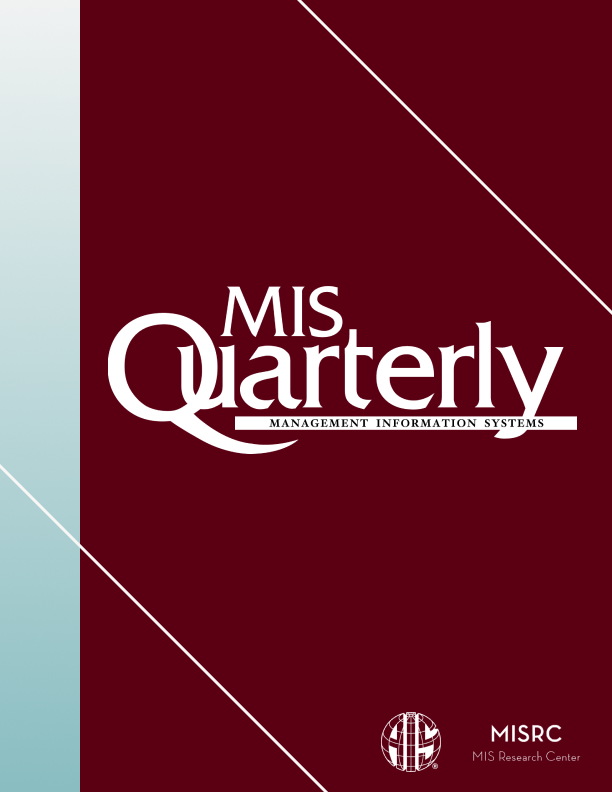Comparing Competing Systems: An Extension of the Information Systems Continuance Model
IF 7
2区 管理学
Q1 COMPUTER SCIENCE, INFORMATION SYSTEMS
引用次数: 6
Abstract
Although individual adoption and use of a single system has been examined extensively, little is known about how people evaluate and compare competing systems. In this paper, we discuss and test three alternative models underlying user comparison of competing systems: separate, crossover effect, and relative comparison processes. The separate comparison process proposes that users develop separate cognitive, affective, and conative evaluations toward each system, and the between-system comparison only occurs at the point of choosing a preferred system. The crossover effect comparison process posits that users not only perform separate evaluations for each system, but also consider the competitive effects when proceeding across cognitive, affective, and conative evaluation stages. In contrast, the relative comparison process postulates that users directly compare competing systems within each of the cognitive, affective, and conative evaluation stages. Based on the IS continuance model, we tested each of these three models using data collected from users of two competing instant messaging systems. Our results showed that the relative comparison process is the most parsimonious and the best model in terms of explaining the mechanisms underlying the comparison of system use by individuals. Theoretical and practical implications are discussed.竞争系统比较:信息系统连续性模型的扩展
尽管对单个系统的个人采用和使用进行了广泛的研究,但人们对如何评估和比较竞争系统知之甚少。在本文中,我们讨论并测试了竞争系统用户比较的三种替代模型:分离、交叉效应和相对比较过程。单独的比较过程提出,用户对每个系统进行单独的认知、情感和认知评价,而系统之间的比较只发生在选择首选系统的时候。交叉效应比较过程假设,用户不仅对每个系统进行单独的评估,而且在跨认知、情感和认知评估阶段进行时还考虑竞争效应。相反,相对比较过程假设用户在认知、情感和认知评估阶段直接比较竞争系统。基于IS连续性模型,我们使用从两个竞争即时消息系统的用户收集的数据对这三个模型中的每一个进行了测试。我们的结果表明,就解释个人系统使用比较的机制而言,相对比较过程是最简约、最好的模型。讨论了理论和实践意义。
本文章由计算机程序翻译,如有差异,请以英文原文为准。
求助全文
约1分钟内获得全文
求助全文
来源期刊

Mis Quarterly
工程技术-计算机:信息系统
CiteScore
13.30
自引率
4.10%
发文量
36
审稿时长
6-12 weeks
期刊介绍:
Journal Name: MIS Quarterly
Editorial Objective:
The editorial objective of MIS Quarterly is focused on:
Enhancing and communicating knowledge related to:
Development of IT-based services
Management of IT resources
Use, impact, and economics of IT with managerial, organizational, and societal implications
Addressing professional issues affecting the Information Systems (IS) field as a whole
Key Focus Areas:
Development of IT-based services
Management of IT resources
Use, impact, and economics of IT with managerial, organizational, and societal implications
Professional issues affecting the IS field as a whole
 求助内容:
求助内容: 应助结果提醒方式:
应助结果提醒方式:


